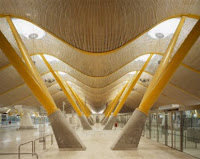CUSTOMS
Customs is a public office or fiscal institution established in coasts and frontiers. Customs register the international merchandise traffic that is imported or exported from or to a country. Customs also charge tax that is owed.
At present in customs there’re also indirect taxes on consumption and others.
Customs’ rights are on foreign merchandise, own merchandise and re-exported.
To make the objects passage easier through the scanner some special trays must be used.
·Take off their jacket and/or coat and put them in the tray. These clothes have to be examined separately while passengers are inspected.
·Take out laptop and any other big electronic devices, and put them in the tray to be examined.
·Passengers should take off their belts and pass them through metal detector.
·Passengers with metal prosthesis have to tell security person their special situation.
·Security people can ask passengers to take off their shoes to examine them.
Passengers can carry light things.
European rules restricts the quantity of liquids that we can pass through security control.
Liquids:
· Water, drinks, soups and syrups.
· Creams, pastes and oils.
· Perfumes.
· Shower gels and shampoos.
· Deodorant…
Usual questions
How many kilos of baggage can I take in an airplane?
· If you travel in tourist class, you can take until thirty kilos. If you take more than thirty kilos, you will have to pay that quantity.
Where are flight billed out of T4?
· All flights are checked on the second floor.
There are different signs with the name of air companies in the access gate of T4’s departures.
When you have passed the security filter, if your boarding door is H, J or K (Schengen or Iberia’s flights to London and Dublin), you will have to go straight right and go down to Floor 1, where the boarding gates are.
Remember: if your flight goes from T4, consult with your air company the time of check in. Take your time and you will avoid unforeseen situations.




No hay comentarios:
Publicar un comentario